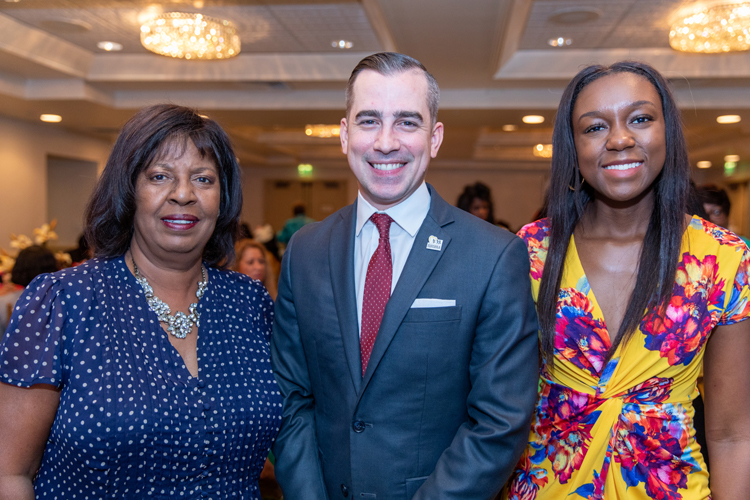The Dasie Bridgewater Hope Center joined forces with the Treasure Coast Chapter of The Links, Inc. to host a Women and Girls Tea recently at Disney’s Vero Beach Resort.
The Wabasso-based Dasie Hope Center provides afterschool and summer academic and recreational programs to children, ages 5 to 18, empowering them “to be self-confident, responsible and well-rounded individuals in a safe and nurturing environment.”
The Links is a nationwide nonprofit founded in 1946 by professional women of color who “are committed to enriching, sustaining and ensuring the culture and economic survival of African-Americans and other persons of African ancestry.”
Its members gather annually to raise awareness about violence against women and human trafficking in hopes of protecting their daughters.
“Human trafficking occurs when a human being is sold, traded, transferred or otherwise exchanged in some way for money, favors or other commodities,”explained Phyliss Wilson, Links vice president of programs. “The
United States is ranked as one of the world’s worst places for human trafficking.
Even more close to home, the State of Florida is ranked among the top three worst trafficking states. Human trafficking is happening everywhere.”
This stark reminder was brought into focus for the crowd as young ladies from the Pace Center for Girls Treasure Coast shared personal experiences through spoken word, song and dance.
After dining on scones, tea sandwiches and delectable sweets, the ladies heard from Callahan Walsh, a child advocate for the National Center for Missing & Exploited Children, whose elder brother Adam was abducted from a mall in Hollywood, Fla., in 1981 and was later found murdered.
Led by their father John Walsh, the family has dedicated their lives to helping other families in similar situations to get justice for their loved ones. Unlike when Adam disappeared, and there wasn’t a national mechanism to help find missing children, the National Center has helped recover more than 300,000 children.
Walsh shared that a staggering 88 percent of sex traffic victims are children in the care of the state; explaining that these children are more easily preyed upon, as sexual predators make promises of love and affection, monetary rewards or gifts.
Closing out the afternoon, several professionals joined a panel discussion on topics relevant to domestic violence and human trafficking, where they shared tips on ways to avoid becoming a victim and provided information on local resources available to them.
Photos by: Denise Ritchie
Click HERE to see more or buy photos

